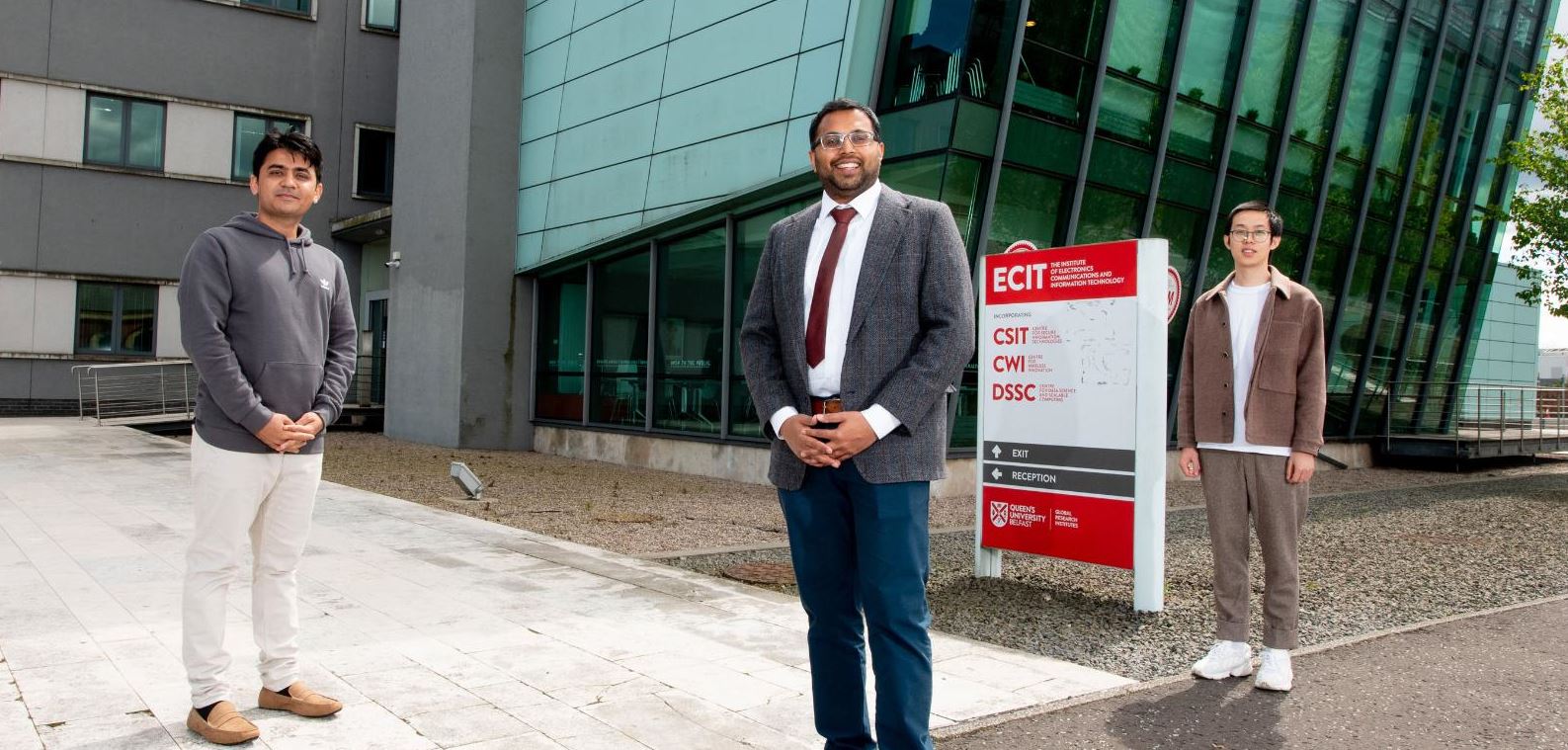BELFAST HUB PAVING THE WAY FOR A FASTER AND MORE SUSTAINABLE INTERNET THROUGH EDGE COMPUTING 
24 May 2021
A new Edge Computing Hub, based at Queen's University Belfast, aims to unlock the scientific and societal opportunities in the next Internet frontier, Edge computing.
Representatives from Rakuten Mobile, a Rakuten Group company responsible for mobile communications headquartered in Japan, joined the official opening (on Thursday 20 May 2021) of the Queen’s University Edge Computing Hub at ECIT’s annual Secure Connected Intelligence Summit.
Edge computing will impact every internet user in the world as it will become the way the internet will work behind the scenes. It is a next generation computing model and will revolutionise the way society uses the internet. It allows for processing data closer to users, thus making internet applications more responsive, reliable and secure.
The hub’s vision was made a reality by the Institute of Electronics, Communications and Information Technology (ECIT) and the School of Electronics, Electrical Engineering and Computing Science (EEECS), both based at Queen's, who partnered with Rakuten Mobile to deliver this exciting project.
Dr Pierre Imai, Head of Research and Innovation at Rakuten Mobile, said:
“Rakuten Mobile aims to be the most technologically advanced telecommunications provider in the world. To achieve this, we have established a new lab to make a truly autonomous network a reality.
“Through our collaboration with Queen’s University Belfast, we have the opportunity to work with leading researchers in the edge computing field, and the results should allow us to provide a better service and a greater level of convenience to our customers.”
The research being carried out at the Hub is mindful of people-at-the-heart of technology. The team based there will tackle key systems-centric challenges for deploying massively distributed edge systems by embedding intelligence into key decision-making activities.
Dr Blesson Varghese, lecturer in the School of EEECS and ECIT Fellow at Queen’s who is leading the project, explained:
“Currently, processing of all data we generate usually happens on geographically distant clouds. As billions of devices are getting connected to the Internet, we need more sustainable and scalable architectures for computing. They must not solely rely on distant centralised clouds.
“Edge computing will bring certain services of applications closer to the users on the edge of the network. This will make applications more responsive and reduces bandwidth demand in the network core.”
The Edge Computing Hub is home to a growing and dynamic community of academic researchers and industry specialists that bring together the two worlds of computer science/IT and telecoms for making ‘Edge Computing’ a reality.
At the hub, a team of PhD students and a post-doctoral researcher will research and develop the underlying approaches for safely and stably delivering edge services, efficiently managing the end-to-end activities of an application, and continuously monitoring the infrastructure to allow an application to seamlessly adapt to changes.
The team at the hub are responsible for publishing scientific research in edge computing, providing accompanying software to the community, and actively participating in outreach and impact activities.
Go to https://www.qub.ac.uk/ecit/Aboutus/Facilities/EdgeComputingHub/ to learn more about the Edge computing hub.
Media enquiries to Queen’s Communications Officer.
Caption (L-R): Dr Rehmat Ullah, Post-Doctoral Research Fellow at the School of Electronics, Electrical Engineering and Computer Science, Dr Blesson Varghese, Principal Investigator and PhD student Di Wu (Rakuten sponsored International scholar).
Back to Main News
Top of Page